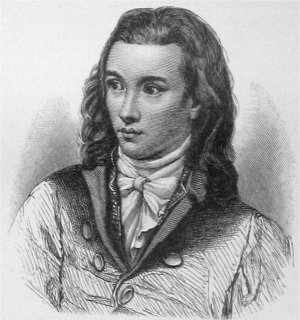Pupils at Sais (1799)
Context: What has passed with him since then he does not disclose to us. He tells us that we ourselves, led on by him and our own desire, will discover what has passed with him. Many of us have withdrawn from him. They returned to their parents, and learned trades. Some have been sent out by him, we know not whither; he selected them. Of these, some have been but a short time there, others longer. One was still a child; scarcely was he come, when our Teacher was for passing him any more instruction. This child had large dark eyes with azure ground, his skin shone like lilies, and his locks like light little clouds when it is growing evening. His voice pierced through all our hearts; willingly would we have given him our flowers, stones, pens, all we had. He smiled with an infinite earnestness; and we had a strange delight beside him. One day he will come again, said our Teacher, and then our lessons end. — Along with him he sent one, for whom we had often been sorry. Always sad he looked; he had been long years here; nothing would succeed with him; when we sought crystals or flowers, he seldom found. He saw dimly at a distance; to lay down variegated rows skilfully he had no power. He was so apt to break everything. Yet none had such eagerness, such pleasure in hearing and listening. At last, — it was before that Child came into our circle, — he all at once grew cheerful and expert. One day he had gone out sad; he did not return, and the night came on. We were very anxious for him; suddenly, as the morning dawned, we heard his voice in a neighbouring grove. He was singing a high, joyful song; we were all surprised; the Teacher looked to the East, such a look as I shall never see in him again. The singer soon came forth to us, and brought, with unspeakable blessedness on his face, a simple-looking little stone, of singular shape. The Teacher took it in his hand, and kissed him long; then looked at us with wet eyes, and laid this little stone on an empty space, which lay in the midst of other stones, just where, like radii, many rows of them met together.
